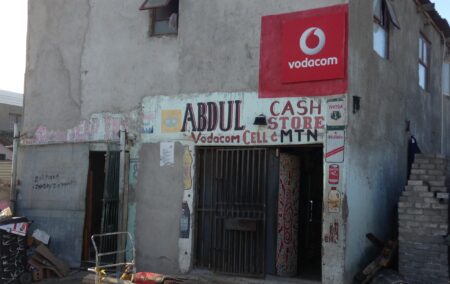We keep being told South Africa is a ticking time bomb of pent-up fury, but somnolence might be our greater challenge.
Not that we are snoozers, necessarily – getting by is hard work, and most people get by after a fashion. But what we suffer from is a kind of languid inattention, and, with it or as a result of it, a failure of imagination.
A symptom of this condition is the remarkably widespread tolerance of the dated romance of a subaltern class hanging on every word of leftist intellectuals without whom, you’d swear, the poor would be thought-less, voiceless and leaderless.
This eccentric notion – at the centre of which is the preservation of race-consciousness – bears little relation to the lives lived by the poor.
For the country’s all-but-ignored economic outsiders, it is the tools the market has delivered – from cellphones and minibus taxis to the internet, cheaper banking, and spaza-shop credit arrangements – that provide the best opportunities for choices most likely to yield a better life.
However, if the energy and dynamism of these millions (as much as the striving middle class) is admirable, it is too often squandered in an environment in which policy and the depressing economic effects it imposes limit choices.
But that wouldn’t be the case if only people realised the power to change it was in their hands.
Business journalist Ed Stoddard observed on 30 October: ‘The economy keeps reaching new milestones under President Cyril Ramaphosa’s administration, but sadly not the kind to showcase to voters.’
He was writing a day after Stats SA announced that the unemployment rate ‘inched up to 29.1% in Q3, an 11-year high’.
The ranks of the jobless grew by 78 000 to 6.73 million, while the number employed grew by 62 000 to 16.38 million people.
On the expanded definition – which includes people who have stopped looking for a job – unemployment now stands at 38.5%.
Of course, as my colleague Terence Corrigan pointed out recently, ‘(for) millions of South Africans, this is ameliorated (partly) by the 17.4 million social grants paid out monthly’. But even this safety net, he noted, was by no means guaranteed. ‘Treasury,’ he wrote, ‘warned some years ago that this was sustainable only if the country could maintain a growth rate of some 3%. This is not remotely in sight.’
Instead, the president – cheered by the intellectuals of the Left – urges greater racial ‘transformation’ of the private sector, endorses policies that demonstrably undermine investor and business confidence, and all the while presides over an economy that ‘keeps reaching new milestones’, in Stoddard’s phrase, which are ‘sadly not the kind to showcase to voters’.
But are voters paying any attention?
An especially effective illustration of why they should was provided at the end of last month by James Myburgh, editor of Politicsweb, when he wrote: ‘The measure of any government, especially one that has been in power for decades, is not just what the state of the country is, but what it could have been, had different policies been followed.’
Myburgh reminded readers of a February 2000 speech by the then Democratic Party’s finance spokesperson Ken Andrew, who argued that ‘sustainable job creation should be the Number One priority of economic policy in South Africa today. South Africa can and must get its economic growth rates up to 6% or more per year, otherwise we will not succeed in reducing unemployment and poverty. We dare not settle for less’.
How would South Africa look today, Myburgh wondered, ‘if these “race denying” liberals had got their way’ and the post-apartheid government had prioritised economic growth, and achieved the goal of 6% economic growth per annum by 2001?
‘Holding all else equal,’ Myburgh went on, ‘the economy would now be three times the size that it was in 2000, and GDP per capita almost twice what it is today.
‘According to StatsSA, there were 12,3m people in employment in South Africa in 2000. There were 3,7m unemployed, and another 1,5m discouraged work seekers, so 5,2m people unemployed on the expanded definition. Today StatsSA estimates that 16,3m people are employed. The number of unemployed has risen to 6,7m, and the number of discouraged work seekers to 2,7m. There are 9,4m people, in other words, who would like to work but are jobless. If a rapidly growing economy had generated job growth of 3% per annum since 2000, then there would have been 21,6m people in employment today in South Africa, 5m more than there are today. If 4% job growth per annum had been achieved, the country would be close to full employment.’
Instead, efforts to ‘transform’ the economy by forcing companies to hand over their shares to a politically connected elite ‘has been a massive deterrence to both domestic and foreign investment’. The same was true, Myburgh pointed out, of ‘recent efforts to accelerate the “transformation” of property ownership through the push for Expropriation without Compensation. It goes without saying that the ANC’s policies to “transform” education – from cadre deployment to “right sizing” to OBE to Sadtufication – have been a disaster for the quality of schooling for the black and Coloured poor.’
Myburgh concludes: ‘We are apparently all meant to believe that this totalitarian policy, pursued over two decades by an electorally dominant liberation movement, in control of all levers of power, has absolutely nothing at all to do with the current country’s economic or institutional malaise. This is obviously a ridiculous position, but not quite as ridiculous as pretending that it is the liberals who are in denial about “race” and “racism”.’
[Picture: By Discott, https://commons.wikimedia.org/w/index.php?curid=26446785]
If you like what you have just read, become a Friend of the IRR if you aren’t already one by SMSing your name to 32823 or clicking here. Each SMS costs R1.’ Terms & Conditions Apply.

